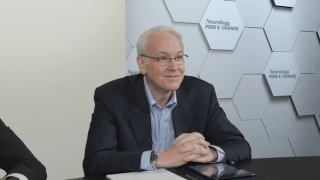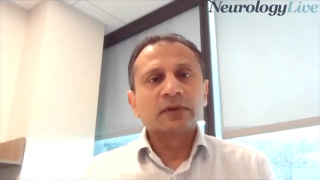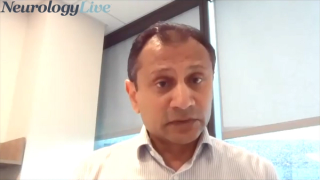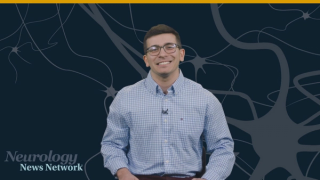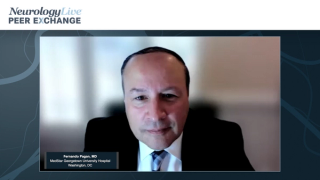
Movement Disorders
Latest News
Latest Videos

CME Content
More News

The senior vice president and chief scientific officer of the Parkinson’s Foundation provided perspective on the reasons for the lack of mental health specialists in Parkinson disease care and the complexities behind treating depression. [WATCH TIME: 4 minutes]

Here's some of what is coming soon to NeurologyLive® this week.

Test your neurology knowledge with NeurologyLive®'s weekly quiz series, featuring questions on a variety of clinical and historical neurology topics. This week's topic is epilepsy and seizure disorders.

Take 5 minutes to catch up on NeurologyLive®'s highlights from the week ending September 29, 2023.
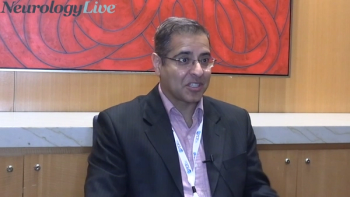
The professor of neurology and resident program director at MedStar Georgetown University Hospital discussed how Parkinson disease motor fluctuations are managed amid new, novel technologies incorporated in the field. [WATCH TIME: 4 minutes]
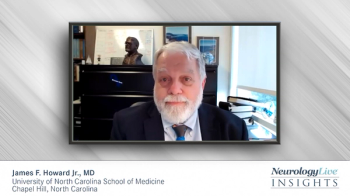
James F. Howard Jr, MD, shares thoughts on the future of the treatment of gMG, highlighting the renewed interest in the disease landscape.

An expert neurologist reviews efficacy and safety data of rozanolixizumab, an FcRn-targeting agent approved for treatment of gMG, as well as how it differs from efgartigimod.

James F. Howard Jr, MD, discusses both intravenous and subcutaneous efgartigimod for the treatment of gMG.

Robert Hauser, MD, MBA, reviews the predictability of dyskinesia and OFF episodes in Parkinson disease.

Robert Hauser, MD, MBA, discusses how the patient experience is defined in Parkinson disease.

The chief of the Movement Disorders Division at Mass General Hospital provided context on the goals behind the research careers reimagined course at the recently concluded ANA Annual Meeting.

Although research supports the use of physical therapy as an effective treatment for Parkinson disease, implementation factors including type, timing, frequency, and durability of outcomes remain mainly untouched.

Virginia Gao, MD, PhD, a movement disorders fellow at Weill Cornell Medicine, discussed several topics related to the use of biomarkers in the prodromal stages of neurodegenerative disorders like Parkinson disease.

Here's some of what is coming soon to NeurologyLive® this week.
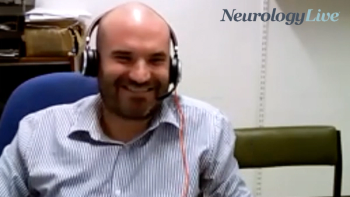
The movement disorder specialist at Cambridge University Hospitals NHS Foundation Trust discussed the rise of wearable technology for managing Parkinson disease to potentially empower patients and monitor the disease at early stages. [WATCH TIME: 4 minutes]

Test your neurology knowledge with NeurologyLive®'s weekly quiz series, featuring questions on a variety of clinical and historical neurology topics. This week's topic is headache and migraine.
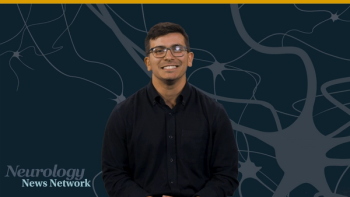
Neurology News Network for the week ending September 23, 2023. [WATCH TIME: 3 minutes]

Take 5 minutes to catch up on NeurologyLive®'s highlights from the week ending September 22, 2023.

An expert neurologist comments on the need for generalized myasthenia gravis treatment to be tailored to the patient to alleviate symptoms without significant adverse effects.

An expert reviews targeted therapies in generalized myasthenia gravis, highlighting complement and neonatal Fc receptors.

In a recent multisite analysis of 361 patients with REM sleep behavior disorder, 84% had neurological abnormalities in at least one domain observed.

The associate professor in the department of neurology at the University of Rochester provided insight on her presentation on psychosis in Parkinson disease and related disorders given at the 2023 ANA Annual Meeting.

Approved in 2016, the newly updated label changes add more clarity to the use of pimavanserin, noting that patients with Parkinson disease with dementia may be eligible for treatment.

The movement disorder specialist at Cambridge University Hospitals NHS Foundation Trust talked about a patient with treatment-resistant Parkinson disease who experienced significant improvement in motor symptoms after using a vibrational therapy. [WATCH TIME: 8 minutes]

Marcio Souza, president and chief executive officer at Praxis Precision Medicines provided follow-up thoughts on recently announced positive findings assessing ulixacaltamide in patients with essential tremor.








